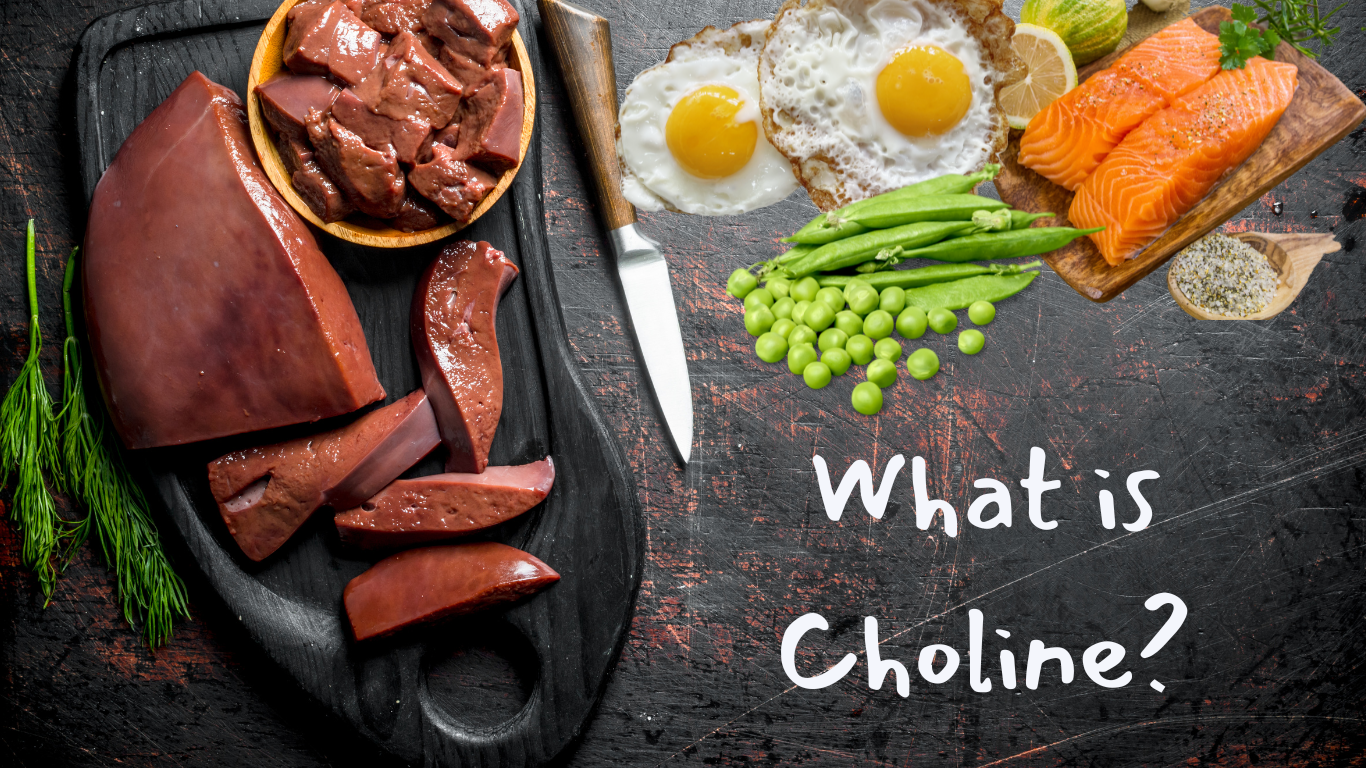
Ever forget where you left your keys or feel tired all the time? Maybe you’ve noticed that your digestion seems off. It could be more than just stress or getting older – it might be that you’re missing a key player in your diet: Choline. This essential nutrient, while often overlooked, plays a vital role in keeping us healthy. But what exactly is Choline, and are we getting enough of it? Let’s pull back the curtain on Choline, an all-important but little-known nutrient.
What is Choline?
Choline is like the unsung hero of your body. It’s a nutrient that helps your body do lots of different jobs that keep you healthy. Think of Choline as the helpful assistant in a busy office, always bustling around doing important tasks that keep everything running smoothly.
In scientific terms, Choline is an essential nutrient. That means your body needs it to function properly, but it can’t make enough of it on its own. So, you have to get it through your diet or supplements. Choline supports many vital functions in your body, like helping with brain development, keeping your liver clean, and even supporting your nervous system.
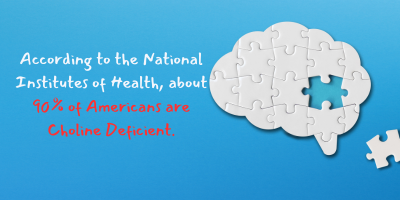
Choline’s Role in the Body
Let’s delve a little deeper into what Choline does in your body. Imagine Choline as a multitasking whiz, juggling several critical roles at once.
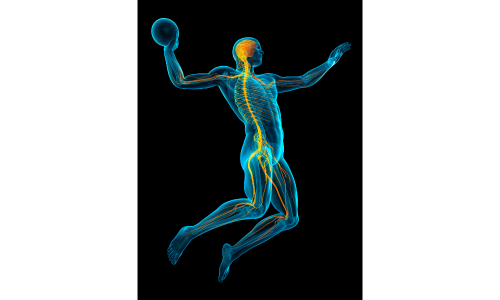
Brain and Nervous System: Choline is like a VIP messenger in your brain and nervous system. It helps make a special substance called acetylcholine, which is crucial for memory, mood, muscle control, and other brain and nervous system functions. It’s kind of like the ‘Post-it’ notes of your body, helping to communicate important messages between your brain and muscles.
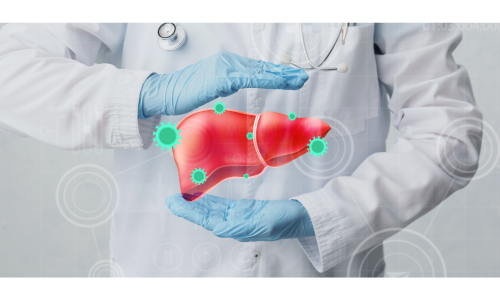
Liver Health: Choline is a bit like a dedicated housekeeper for your liver. It helps move fat out of your liver to prevent fat build-up, which can lead to liver damage. So, without enough Choline, your liver could become a cluttered, chaotic mess!
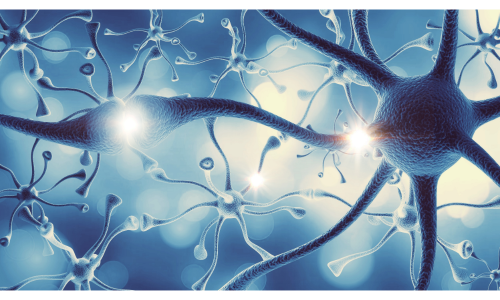
Cell Structure: Every single cell in your body needs Choline. It helps build and maintain the structure of your cell membranes, like the bricks and mortar of a house. Choline also plays a role in the production of compounds necessary for cell messaging and fat transport.

DNA Synthesis: Choline also plays a vital part in a process called DNA synthesis. It’s like a master architect, helping to design and build your body’s genetic material.
Remember, Choline is an essential part of these processes, and without it, our bodies couldn’t function as they should.
Sources of Choline
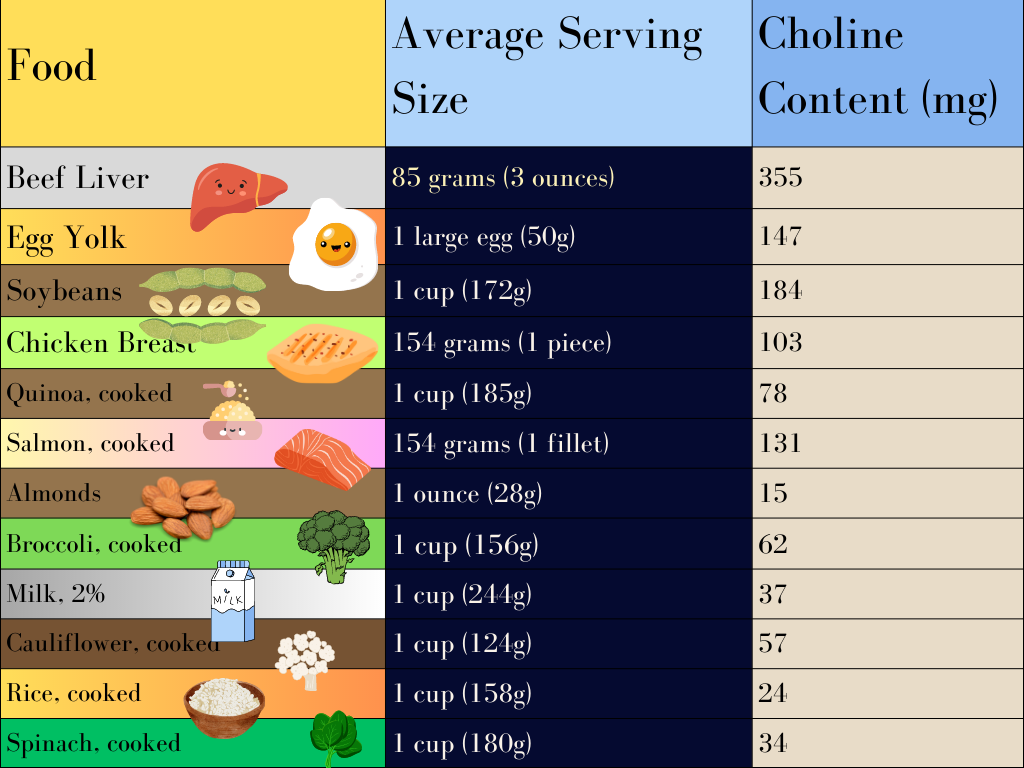
Dietary choline can be found in a variety of food sources. Eggs, lean meats, fish, and dairy products are excellent intakes of choline-rich foods. Additionally, certain vegetables like broccoli and Brussels sprouts also contain choline. For individuals with dietary restrictions, choline supplements can be a viable option.
Beef liver supplements are one of the highest quality and best-absorbing ways to get Choline in your system. To read more on this and see the best Beef Liver Supplements CLICK HERE!
Importance of Dietary Choline Intake

Just imagine, you’re in a grand orchestra, watching a symphony come to life. Each musician plays a critical role, their instrument contributing to the harmonious blend of sounds. Now, think of Choline as one of these musicians in the orchestra that is your body. It may not always be in the spotlight, but without it, the entire performance could fall flat.
An often overlooked nutrient, Choline is like the unsung hero in our body’s symphony. It quietly supports many essential biological processes, doing its part to keep the music flowing smoothly. Your body hums along like a well-rehearsed melody when choline is in place.
Let’s break it down to see exactly how Choline helps compose this symphony:
Brain Conductor: Choline is a maestro when it comes to brain development. It helps orchestrate the intricate neural network, influencing memory, mood, and mental functions. If you’re lacking choline, your brain’s beautiful symphony could turn into a cacophonous mess.
Liver’s Harmony: The liver relies on choline to maintain its rhythm. Choline aids in the transport of fats from the liver to the rest of the body. Without it, fat may accumulate in the liver, throwing off its beat and leading to nonalcoholic fatty liver disease.
Considering the essential roles choline plays, the symphony of our body could go out of tune without it. Would you want to stick around for a concert where the music is out of sync? Probably not. That’s why it’s crucial to ensure you’re getting enough choline in your diet. But what happens if your dietary intake falls flat and hits a sour note?
Consequences of Choline Deficiency
Think of Choline as the diligent musician in our body’s orchestra who never misses a beat. It’s always there, playing its part faithfully. But what happens when it’s not there? What if this musician goes missing? The music could quickly descend into disharmony.
A choline deficiency is much like this missing musician. Without choline, our body’s symphony starts missing some critical notes, causing an imbalance that can lead to severe consequences. This is particularly true for the liver, our body’s primary detoxifier and metabolic regulator.
Choline has a crucial role in the liver. It assists in the transport of fats, called lipids, from the liver to the rest of the body. If we don’t have enough choline, this transport system could falter. Fats could start to accumulate in the liver, leading to a condition known as nonalcoholic fatty liver disease. This disease disrupts the liver’s functionality and may cause liver damage over time.
But why fatigue, you ask? Well, the liver isn’t just a detoxifier. It’s also responsible for releasing glucose into the bloodstream, our body’s primary source of energy. If the liver isn’t functioning properly due to a choline deficiency, this process can slow down, resulting in fatigue.
The liver is located in the upper right part of the abdomen. If it’s not functioning properly due to fatty deposits, it can enlarge and cause discomfort or pain in that area.

To put it simply, imagine trying to play a symphony with an out-of-tune instrument. The music wouldn’t sound quite right, would it? That’s why getting enough choline in your diet is crucial for keeping your body’s symphony in harmony. Without it, you risk striking the wrong chord in your health. It’s critical in preventing conditions such as nonalcoholic fatty liver disease, liver cancer, and other types of liver disease.
Recommended Choline Intake and Measurement
The Food and Nutrition Board’s Dietary Reference Intakes suggest different amounts of choline based on age and gender:
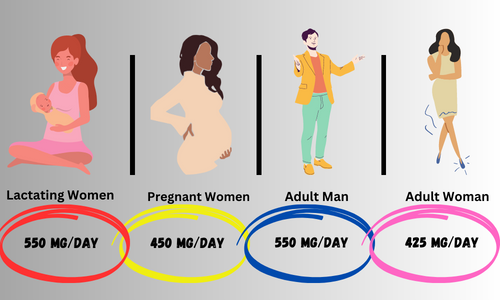
For adult men, the suggested intake is 550 mg/day.
For adult women, it’s 425 mg/day.
However, if you’re pregnant or lactating, you need a bit more:
Pregnant women should aim for 450 mg/day.
Lactating women should aim for 550 mg/day.
The increased requirement for choline during pregnancy and lactation is due to the demands of the developing fetus or newborn.
Choline Supplements: Types and Benefits
Various types of choline supplements are available in the market, including choline bitartrate, choline chloride, and CDP choline. These can serve as alternative dietary supplements for individuals who are unable to meet their choline requirements through diet alone. Moreover, intravenous choline supplementation is available for individuals with specific medical conditions.
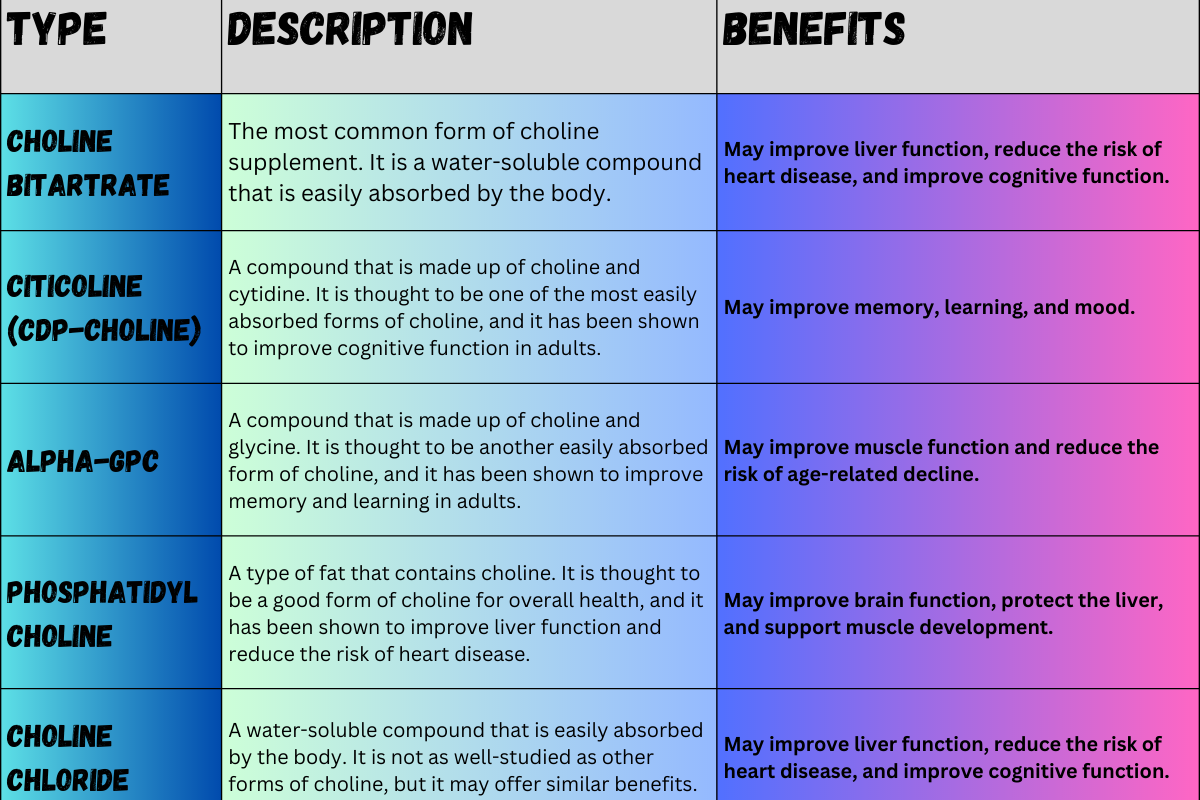
Side Effects of Excessive Choline Intake
While choline is essential, too much choline can lead to adverse side effects. Overconsumption of choline can cause a fishy body odor, known as trimethylaminuria. It can also lead to low blood pressure, and excessive intake is linked with an increased cardiovascular disease risk.
Choline: A Delicate Balance for Heart Health
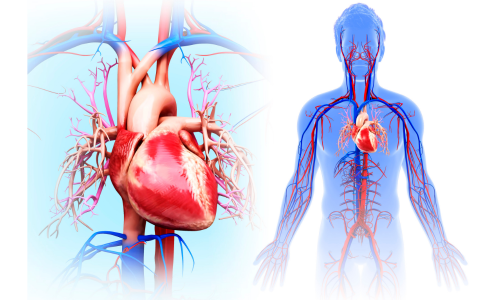
The relationship between choline concentrations and our heart health is a bit like walking a tightrope. We need just the right balance to make it across safely.
You see, choline is essential for our heart’s health. It plays a vital role in maintaining the structure of our cells, including those in our heart and blood vessels. However, like anything in life, too much of a good thing can also be harmful.
When we have more choline than our body needs, it can be converted into certain byproducts that aren’t so good for our hearts. These byproducts can contribute to the build-up of fatty plaques in our arteries, a condition known as atherosclerosis. This build-up can narrow the arteries, making it harder for blood to flow through them, which increases our risk of heart disease.
So, with Choline, it’s all about finding the right balance. We need enough to keep our cells healthy, but not so much that it puts our hearts at increased risk too. It’s a bit like trying to cross that tightrope – we need to stay balanced to reach the other side safely.
The Choline-Cholesterol Conundrum: Balancing the Scales of Your Diet
This may seem like a nutritionist’s Catch-22. After all, we’re often advised to monitor our cholesterol intake for heart health. So how do we balance these two?
First, it’s vital to understand that dietary cholesterol (cholesterol found in food) doesn’t affect our blood cholesterol levels as much as the types of fats we eat. Foods high in saturated and trans fats can increase levels of ‘bad’ cholesterol (low-density lipoprotein or LDL) in our blood more than consuming high-cholesterol foods. Cholesterol Analogy
Second, remember that moderation is key. A diet with adequate intake of a variety of foods will help ensure you get an array of nutrients, including choline. Consuming choline-rich foods in moderation, along with a balanced diet filled with fruits, vegetables, whole grains, and lean proteins, can help you maintain healthy choline levels without consuming excessive cholesterol.
Third, there are many plant-based choline-rich foods, like soybeans, quinoa, and broccoli, that can help increase your choline intake without boosting your cholesterol levels.
Choline and Cognitive Function
Choline is a vital pillar in the architecture of brain development and cognitive functioning. This essential nutrient is the building block for acetylcholine, a significant neurotransmitter deeply involved in aspects of memory, mood regulation, and muscle control, among other functions within the brain and nervous system.
Moreover, choline supplements have earned recognition in the realm of nootropics, substances known for boosting cognitive capabilities. By enhancing mental functions, such as memory and creativity, choline supplements are a potential tool for optimizing cognitive health. This fascinating overlap of choline’s inherent role in our bodies and its application in cognitive enhancement underscores the importance of maintaining adequate choline levels in our diets or through supplementation.
For more on Choline boosting Nootropic supplements, CLICK HERE!
Choline in Pregnancy
Pregnant women have higher plasma choline concentrations than needed, given its role in the brain development of the fetus. It’s also crucial in the prevention of neural tube defects. Trimester maternal plasma choline levels can reflect the adequacy of choline intake during pregnancy.
Conclusion: Importance of Balancing Choline Intake
In a nutshell, choline is a silent but essential nutrient, guarding liver health, powering brain development, and warding off diseases. Striking a balance with your dietary choline intake is key—too little or too much can cause issues.
Now, we’re not advising you to track every microgram of choline. That’s like counting grains of sand at the beach. Just get familiar with choline-rich foods and try to include them in your diet more often. Alternatively, a beef liver or choline supplement could be a straightforward option.
By simply increasing your awareness and adjusting your intake slightly, you might see improvements in your mental sharpness and physical health. It’s not always about big changes; sometimes, a small step is all you need to make a big difference. That’s the essence of balance.
FAQ’s
Q: What is the Link Between Choline and Betaine
A: Betaine is a metabolite of choline and is present in our diet. Like choline, betaine plays a role in liver function and cardiovascular health. Adequate dietary intake of both choline and betaine is important for optimal health.
Q: Can Choline affect Blood Pressure?
A: Choline intake can influence blood pressure. While low blood pressure has been associated with excessive choline intake, adequate levels of choline may contribute to maintaining healthy blood pressure.
Q: Can I get choline from a supplement?
A: Yes, you can get choline from a supplement. Choline supplements are available in a variety of forms, including capsules, tablets, and powders. The dosage of choline that you need will depend on your individual needs. It is important to talk to your doctor before taking a choline supplement.
Q: Is Choline Safe to Supplement?
A: While choline is an essential nutrient, it’s always best to consult with a healthcare provider before starting any new supplement regimen. Although it’s generally considered safe, excessive choline intake can lead to certain side effects.
Q: Can I Get Choline from Plant-based Foods?
A: Yes, choline is present in a variety of plant-based foods, such as soybeans, quinoa, and broccoli, making it accessible for those following vegetarian or vegan diets.
Q: What are the Signs of Choline Deficiency?
A: Choline deficiency can lead to symptoms like fatigue, memory issues, cognitive difficulties, nerve damage, and mood changes. If you’re experiencing any of these symptoms, it might be a good idea to get your choline levels checked.
Q: Does Choline Aid in Weight Loss?
A: While choline itself doesn’t directly cause weight loss, it does play a vital role in fat metabolism. As a result, maintaining adequate choline levels can support overall health and well-being, which could indirectly contribute to weight management.
A: Q: What is the Connection Between Choline and Alzheimer’s Disease?
Research has indicated a potential link between choline intake and a reduced risk of Alzheimer’s Disease, largely due to its role in brain health and cognitive function. However, more research is needed to fully understand this relationship.
